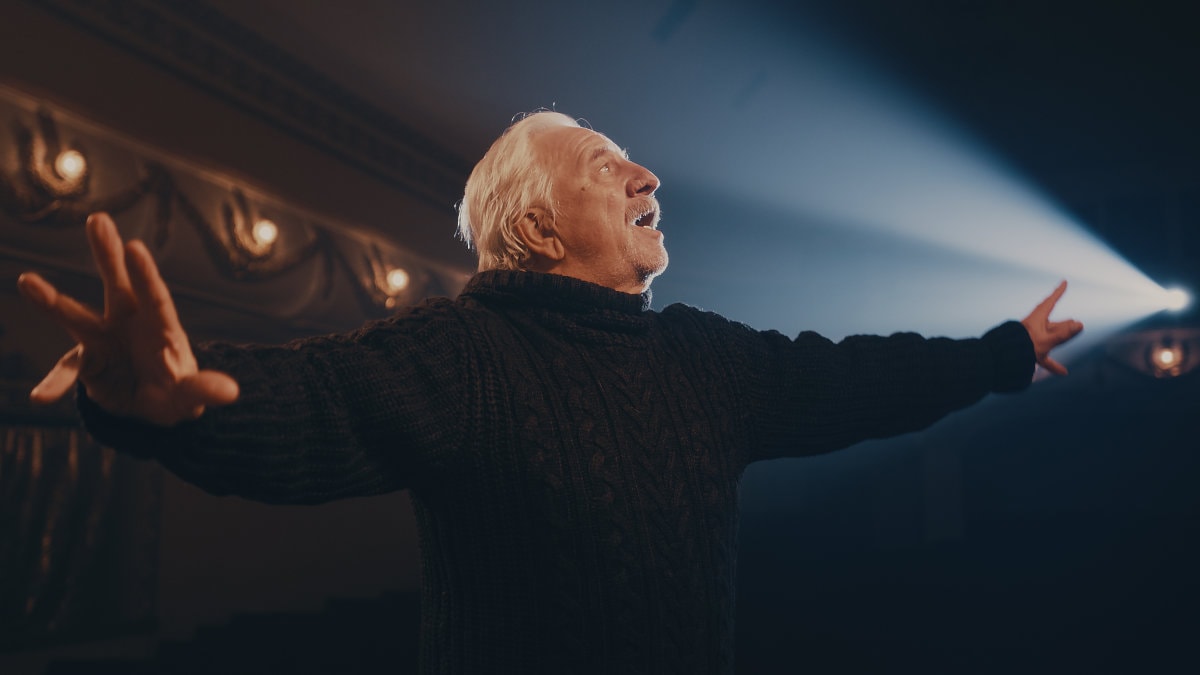Becoming an actor is a dream for people all over the world, however, there’s a common misconception that to be a successful actor, you have to start at a young age. This often discourages aspiring actors that find their passion for performing later in life as they feel that they’ve missed their chance of making it.
It’s never too late to become an actor. Whilst on average, actors get most of their roles between the ages of 30 and 39, in reality, many actors have achieved great success after starting later in life and with the right training and motivation, it’s possible to have a successful acting career at any age.
Whether you think you’re too young or too old, in this blog post I’ll be going over the pros and cons of starting an acting career earlier vs later, the importance of skill and experience in acting, some examples of successful actors that made it later in life as well as some important tips for starting an acting career at any age.
Table of Contents
Starting an Acting Career Young

We’ve all heard of actors that started acting when they were young and have gone on to become global stars. I’m sure it’s no surprise then, that there are many advantages to starting an acting career whilst you’re still young. But it’s important to recognise that there are also a few disadvantages that you should keep in mind.
Advantages of Starting Young
- More opportunities: Pursuing acting from a young age gives you the opportunity to explore a broader range of roles. Since you have more time on your side, you’ll have the chance to do more auditions over your career and therefore have more work. This could then help you achieve success a lot earlier.
- More time to improve: Starting young allows you to train, fail and learn from your mistakes more quickly. Having more time to fail means that you can reach a high skill level before you even become an adult. This will mean that by the time you are an adult, you’ll already have a huge amount of training and experience that can assist you.
- Exposure to the industry: The entertainment industry has its quirks and understanding the business is essential to a successful career within it. Entering the industry from a young age will allow you to learn through exposure, you’ll be around people that have vast amounts of experience and will be given the opportunity to learn from them. This will help you later in life, as understanding how the industry works and how to work within it is extremely beneficial.
- More time to build a network: Unfortunately a successful acting career takes more than being a good actor. You must also be able to network and build connections within the industry. Simply put, starting earlier gives you more time to build this network around you that will help you later on in life.
Take Control of Your Acting Career
Learn to build a consistent and sustainable career in the entertainment industry!
Disadvantages of Starting Young
- Reliance on parents: Young actors will have a large reliance on their parents when pursuing an acting career. Not only will parents have to dedicate time and money to classes, auditions, etc. But actors under 18 or 16 (depending on where you live) will also have to be accompanied by a parent when working.
For parents, helping a child pursue an acting career can often be a full-time job for them too. If your parents aren’t willing or able to put in that work, then you may have to wait till you’re a bit older. - Industry pressure: Whilst acting is incredibly fun, it is still a job, and not an easy job at that. Whilst being in the limelight does seem glamorous, there’s a lot of pressure that comes with it and this can be very hard on young performers. From rigorous training to hours of learning lines to constant auditions.
Young actors give away their free time to pursue this career. Whilst pursuing a career as an actor from a young age is very rewarding, and if the child enjoys it then they should be able to pursue it; child actors will often have to deal with adult problems and adult emotions. This can be hard. - Education: When young actors get hired, they’re naturally away from school for long periods. Fortunately, productions will hire a tutor to ensure the child’s education doesn’t suffer, although realistically most kids that are on a film set, working with people they’ve seen on TV, aren’t going to be thinking much about science or maths.
Starting an Acting Career Later

Most people would think that starting an acting career later in life brings nothing but disadvantages. And whilst there are a few disadvantages, there are also many advantages to starting an acting career later.
Advantages of Starting Later
- Life experience: Starting your acting journey later in life allows you to enter the industry with more life experience and the emotional maturity which comes with it. This life experience may help you to portray certain roles as your experience is an asset.
- Career experience: For most, someone entering the industry later in life will have years of experience in another field which can be a massive benefit. For example, someone that has 20 years of experience as a police officer before transitioning into an acting career can be a massive asset to a casting director. Your experience living a normal life is one of your USPs (unique selling points).
- Flexibility: As an older actor you may have more flexibility. Whilst you obviously won’t have to rely on your parents as a child actor would, many people start pursuing acting when they become financially free through retirement or past career success. This means you don’t have to worry about the financial troubles that most actors struggle through.
Disadvantages of Starting Later
- Limited opportunities: Depending on your look and casting type, starting an acting career later in life could limit the number of opportunities that you get. Not just in the sense that there are fewer older characters to audition for, but also since you’ll have less time to audition. Someone that starts acting at the age of 18 may audition for thousands of roles over their multi-decade-long career. And usually, the more auditions you do, the more roles you’ll get.
- Established competition: The reality is, as an older actor you’ll be competing with actors that have not only built massive names for themselves but have also had decades of experience learning, performing, failing and succeeding. Although it’s important to remember that, no matter what age you start acting, you’ll always be competing against better actors with bigger names. There’s still a place for you in this industry.
- Physical limitations: Depending on your fortune, getting older comes with a few physical limitations. This may not be a problem in most instances, since you’ll probably be playing characters of around your age anyway, there may come roles that warrant physical mobility that you don’t have.
The Importance of Skill and Experience

Some people believe that acting is relatively easy since, in theory, it can be done by anyone. But in practice, being a good actor takes a number of specific skills that can only be developed through practice and experience. Whilst there are a few actors that are naturally talented performers and don’t use these techniques, these are in the minority.
For most of us, understanding script analysis, character development, acting techniques, vocal and physical techniques, as well as human psychology in general can make an actor’s job a hell of a lot easier! Many actors dedicate years to drama school, acting classes and practice through experience in order to perfect these skills. This is a life-long pursuit.
When learning to act, ensure you spend time focusing on and developing these techniques as they’ll help you when starting out. Fortunately, entering the industry later in life may make learning these techniques easier. Whilst actors don’t have to draw upon their own experiences (as is taught within The Method) to give great performances, having life experience can help you understand the emotion and subtext of a scene.
How Age Affects Opportunities

Unfortunately, the entertainment industry has been known to be harsh and unfair on occasion. For most actors, age does affect the number of auditions you get. This is especially true for women.
In an analysis of IMDb data by Hanssen and Fleck; 80% of leading roles for actors in their 20s went to women, just 40% of leading roles for actors in their 30s went to women and a measly 20% of leading roles for actors in their 40s went to women.
Whilst women in their 20s have a massive advantage over men in their 20s, this quickly drops as they get older. Even Meryl Streep, once said, “I remember as I was hovering around 40, I thought each movie would be my last, really.”
I’ve met more than a few people that changed careers from acting to casting or to being an agent because the work just wasn’t there at the time. This is really unfortunate, and with more diversity on screen now than ever before, I hope that it changes. That being said, don’t let this information stop you from pursuing your dreams! The statistic will drop to 0% if you don’t even try.
The number of roles that male actors book in their later years does drop, just like with women, but it drops at a much slower rate. So there’s not much to worry about in that regard.
The Perfect Age to Start Acting
There is no ‘perfect’ age to start an acting career. It is true that actors that start early will have more opportunities and time to improve, but in reality, the best time to become an actor is now, no matter how old you are.
If you’re younger, great! But if you’re older, there’s no point regretting that you didn’t pursue acting earlier. You can still pursue it now and have great success. To learn how to do this, read my full guide on how to become an actor.








